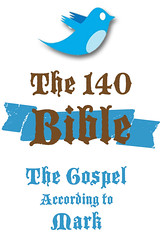So what's the deal with the long list of "...was the father of..." and why does it matter? Most scholars attribute the Gospel according to Matthew to a Jewish Christian--not Matthew the Apostle. The author, if not the Apostle Matthew, was likely a follower of Matthew and belong to a church that Matthew set up, and in both cases Jewish traditions would have been important. One thing Jews loved back then is family history.
So what's going on in the genealogy and why is it important? Two major reasons. One, it's linking Jesus back to Abram, the father of all Judaism. If you could tell a Jewish person that you descended from the line of Abram, then you were royalty. Two, it's further linking Jesus to David. All of this fulfills prophecy, but it's also setting up Jesus to be the rightful ruler of the throne that was set up with David.
The real argument about Jesus isn't about if he existed. Every religion, even Judaism, will tell you there's enough historical evidence to prove that he did exist. The argument is always going to be was he who he said he was. Matthew is arguing that he is the King of the Jews that prophecy predicted. Non-believing Jews, will argue that he was not literally a king, so the prophecy was not fulfilled. They believed that the Jesus who was descending from the line of David was going to be a mighty ruler who conquered--coincidentally there was another person claiming to be the Messiah that came a few years later, and he did try, unsuccessfully, to conquer--his name was Simon bar Kokhba.
So the importance of this genealogy is it's showing that Jesus can be traced back to Abram and David--thus making the argument that he was fulfilling prophecy, and proving he is the Messiah.
If you're familiar with the Gospel of Luke, then you might notice it looks a bit different from Matthew's; it's too long to get into here, but if you're interested in knowing more about the lineage of Jesus, then Google it--you will find plenty of resources.







0 comments:
Post a Comment